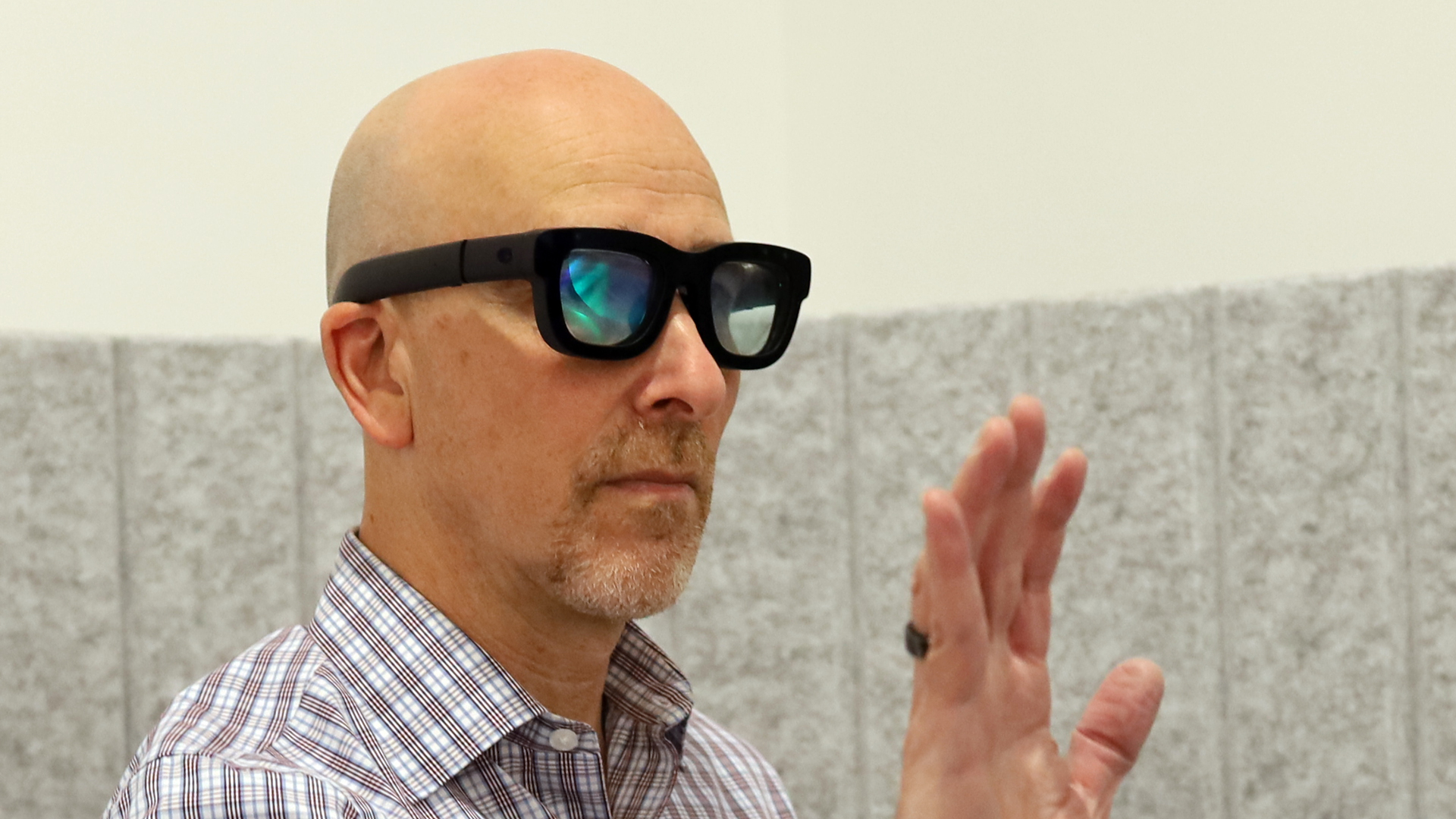Meta Orion AR glasses could get these 3 incredible sci-fi tricks, according to new Project Aria update
The AI and AR glasses could teach you skills and much more

- Researchers have shared their impressive Meta Aria projects
- Aria is a research kit to help developers better understand AR and AI
- These projects could become Meta Orion features if we're lucky
Meta has just shared an update on its Aria AR glasses research project collaborations, and they reveal some exciting potential ways that the publicly available versions of its Meta Orion AR Glasses could shape our real-world lives when they launch.
Project Aria’s goal is to help software developers and researchers “better understand how to build the software and hardware necessary for future AR and AI-powered glasses.” Initially an internal undertaking, Meta expanded Aria access to partners like BMW and various universities across the globe – and what they’ve created so far highlights some awesome use cases for AR glasses.
It’s worth noting that all of these tools are still at the research stage, so we’re likely still years from them being packaged into a consumer usable app – something which may not even happen with any of these projects. But they highlight some of the ways Orion could be used, and who knows? With Orion likely years away there’s still plenty of time to turn these projects into the world’s best AR apps before they launch.
1. Learning from the experts
The Matrix series is not a dystopian setting anyone wants to live in, but there’s one aspect of that world I’m sure most of us would want to bring into our real one: the ability to download any skill we could need.
While the Orion glasses might not instantly make you a master of kung fu, or teach you how to fly a helicopter in seconds, they could help us gradually improve our skills with feedback it has learned from experts.
For its Project Aria research, the University of Bristol has been capturing data from highly skilled people – from chefs, to musicians, to athletes, to mechanics – tracking their movements and how they move objects to learn more about how they “interact with and change the world to achieve their goals.”
With this understanding it’s easy to see how Orion could offer AR lessons about how to repair a bike or cook a delicious meal, going so far as to highlight the real-world object you need to use and showing you how to use it in real-time.
Get daily insight, inspiration and deals in your inbox
Sign up for breaking news, reviews, opinion, top tech deals, and more.
2. Driving more safely
Researchers at IIIT Hyderabad have used Project Aria to develop its Driver Intent Prediction Project. Using the AI glasses’ outward cameras, and their inward eye-tracking cams – as well as various other car sensors – the team is able to tell where drivers are looking and importantly where they aren’t.
If a pedestrian mindlessly steps into the street while you’re looking in your mirrors, the glasses can detect that you haven’t seen them yet and warn you – allowing you to take action. The project’s goal is to reduce traffic accidents and it’s easy to see how this tool could help make us safer drivers if Orion were to launch with a version of it.
3. Maximizing accessibility
The last two Aria projects demonstrate the glasses’ accessibility credentials. University of Iowa researchers are using Aria to help people with hearing loss by using the specs’ microphone array to help determine the direction sound is coming from. This could then be combined with prompts on an AR glasses’ display, or used in conjunction with traditional hearing aids to improve its effectiveness.
Meanwhile, researchers at Carnegie Mellon University have used the glasses to help people with visual impairments. Using the glasses’ sensors (and some external beacons) Aria could help people more easily navigate unfamiliar environments with real-time guidance.
These kinds of accessibility features and more are exactly how technological advancements like Meta Orion could (and should) be put to use.
As more people get their hands on Aria research kits I’m excited to see what other projects they work on, especially as that hopefully means that Orion will have some awesome tools when it eventually releases to the public.
You might also like

Hamish is a Senior Staff Writer for TechRadar and you’ll see his name appearing on articles across nearly every topic on the site from smart home deals to speaker reviews to graphics card news and everything in between. He uses his broad range of knowledge to help explain the latest gadgets and if they’re a must-buy or a fad fueled by hype. Though his specialty is writing about everything going on in the world of virtual reality and augmented reality.



